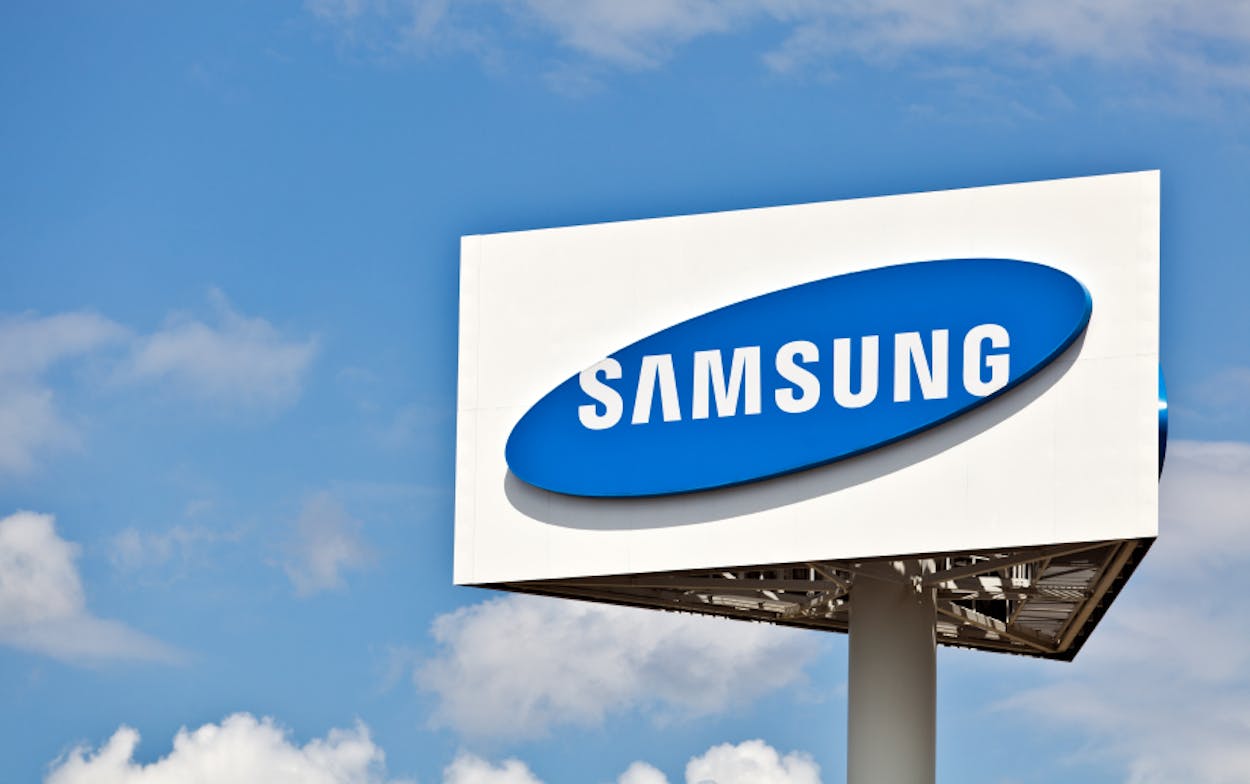The Texas economy is one of the most robust in the world. Wildly profitable companies and ingenious entrepreneurs call this state home, and what happens here influences businesses around the nation. Here’s a slice of the profits, losses, big deals, and backroom decisions happening across
House of the Rising ’Sung
Samsung announced this week that it will pump about $4 billion into its Austin manufacturing plant “to boost output of processors increasingly used in smartphones and tablet computers,” Businessweek reports. The company says it will finish converting the factory and begin mass production by late next year.
Samsung, the largest memory chipmaker in the world and the sole manufacturer of iPhone and iPad processors, is shifting away from memory in favor of the expanding market for “mobile application-processors,” analysts told Businessweek.
The Bottom Line: The investment—“the largest in size to be made by a foreign company in Texas”—may be used to ramp up production of mobile chips for Apple, Samsung’s largest client.
You’ve Got Fail
Dallas Morning News publisher James Moroney is on the frontlines of a legal battle between newspapers and junk mail purveyors—a fight that lost some traction this week. On Thursday the Postal Regulatory Commission “approved a plan that gives one of the nation’s largest direct marketers a postage discount on advertising flyers,” which could net as much as $15 million in additional revenue for the U.S. Postal Service, the Associated Press reports.
The commission’s deal with Valassis Communications Inc. comes at the expense of newspapers, which compete for many of the same advertisers. Moroney, in his capacity as chairman of the Newspaper Association of America, argued that “about $1 billion in annual newspaper industry ad revenue would be put at risk because it would lure big advertisers away from its Sunday newspapers,” according to the AP.
The Bottom Line: The commission disputed the NAA’s estimate, ruling that current policies “do not shield newspapers from the consequences of fair competition.” The newspapers plan to appeal the commission’s ruling.
Lockheed and Loaded
The Grand Prairie division of Lockheed Martin Missiles and Fire Control secured a $65 million contract this week to develop a new combat vehicle prototype for the U.S. military. The defense contractor is one of three companies selected to continue working on the “joint light tactical vehicle” concept for the next two years, at which time the government will choose one firm to oversee the full-scale project, the Dallas Business Journal reports.
The Bottom Line: Lockheed Martin says the next step will be to “take the vehicle through the engineering and manufacturing development phase.” According to the DBJ, the company will produce 22 vehicles in the next 12-14 months.
The Pipe Man Cometh
Keystone XL oil pipeline developer TransCanada has been cleared to build the line over private farmland in northeast Texas, CBS News reports. A Lamar County judge ruled Wednesday that the project meets the standards for eminent domain, “meaning the project is under the authority of the Texas Railroad Commission and qualified for land condemnation.” Once completed, the pipeline will carry crude oil from Canadian tar sands to the Texas Gulf Coast.
The Bottom Line: The farm’s owner, who “argued that TransCanada trampled her property rights and that the project could harm Caddo Indian artifacts on her farm,” plans to appeal the ruling to a state district court, according to CBS.
Winner of the Week: Whole Foods
Last year Whole Foods set out to “triple its store count to 1,000 and boost sales by opening locations in underserved areas and smaller markets,” and Businessweek reported this week that the Austin-based natural foods monolith is making fast progress toward that goal. In addition to targeting so-called “food deserts” in smaller communities, the chain is also making an ambitious push into urban areas in Detroit, Chicago and Newark.
The strategy could mean even more success for Whole Foods, which has seen an estimated sixteen percent sales growth this year, well ahead of the industry average.
Loser of the Week: Zynga
Austin social game studio Zynga Inc. is still struggling to recover from a slump it fell into in the wake of its December IPO. The company’s stock has plummeted by seventy percent in nine months, and players are abandoning its most popular games, including “FarmVille,” “CityVille” and “CastleVille”—which each lost at least twenty percent of their audience in the last three months, according to Businessweek.
Despite the apparent free-fall, CEO Mark Pincus says he will never consider selling the company, no matter how much shareholders protest. “My only exit is by natural causes,” he said at a July event.






